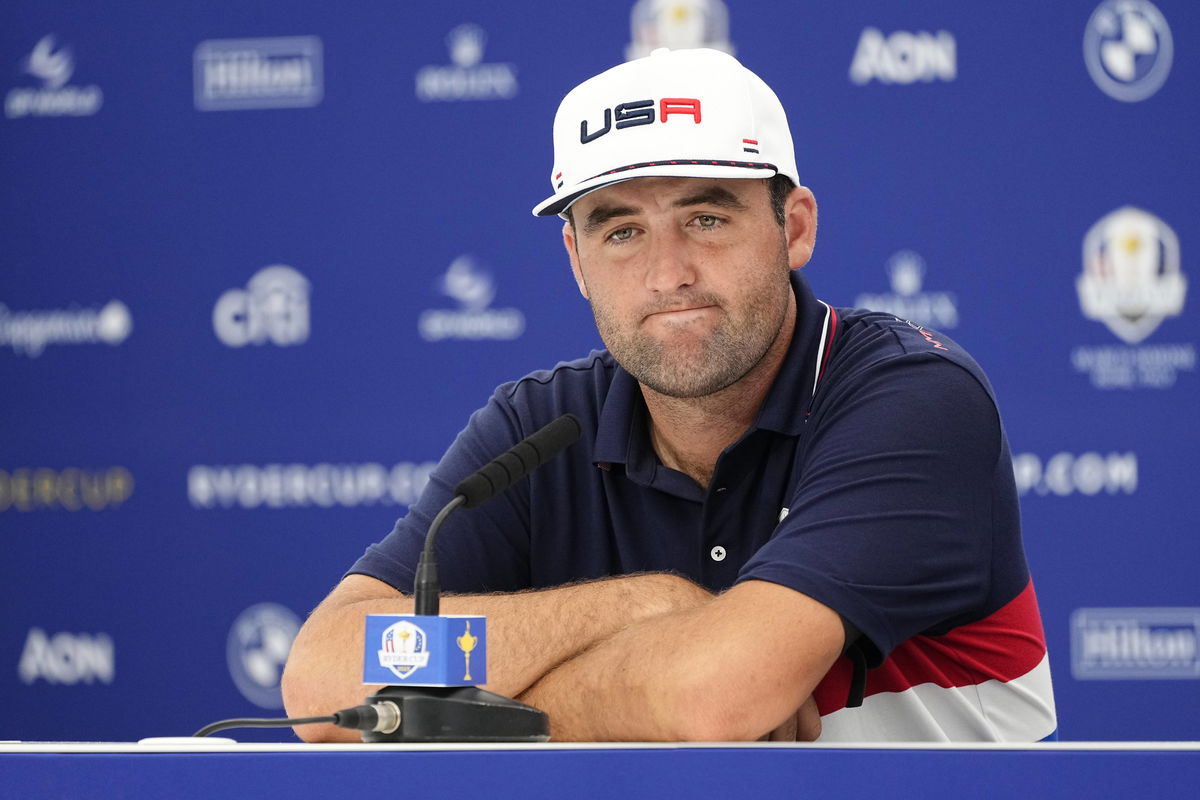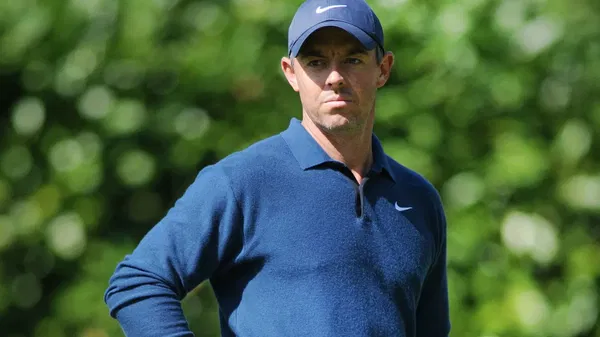
Imago
PGA, Golf Herren Ryder Cup – Practice Round Sep 27, 2023 Rome, ITA Team USA golfer Scottie Scheffler speaks during a press conference, PK, Pressekonferenz for the Ryder Cup golf competition at Marco Simone Golf and Country Club. Rome Marco Simone Golf and Country Club ITA, EDITORIAL USE ONLY PUBLICATIONxINxGERxSUIxAUTxONLY Copyright: xAdamxCairnsx 20230927_ter_usa_141

Imago
PGA, Golf Herren Ryder Cup – Practice Round Sep 27, 2023 Rome, ITA Team USA golfer Scottie Scheffler speaks during a press conference, PK, Pressekonferenz for the Ryder Cup golf competition at Marco Simone Golf and Country Club. Rome Marco Simone Golf and Country Club ITA, EDITORIAL USE ONLY PUBLICATIONxINxGERxSUIxAUTxONLY Copyright: xAdamxCairnsx 20230927_ter_usa_141
Golf’s civil war shows no sign of cooling off. It’s an ongoing conflict that continues to draw top players away from their comfortable positions, made even more so by sponsorship money, which has not ceased; it persists. Nonetheless, this is where a fresh voice chimes in. Graeme McDowell steps into the spotlight to voice his opinion regarding the matter. The LIV veteran argues voices sowed the divide at the PGA’s upper echelons, including those of Scottie Scheffler and Rory McIlroy.
Watch What’s Trending Now!
He says that golfers like him simply took the smarter business offer and continued to grind. He argues that others just took profitable deals and worked with them. Meanwhile, the PGA’s most prominent names continued to push a harsh narrative. This remark throws the spotlight right back onto golf’s most prized figures and drags the discussion into deeper waters.
🚨👀⛳️ #NEW — LIV Golfer Graeme McDowell weighs in on the ongoing divide in golf: “The divisiveness has come from the best players in the world. It hasn’t came from the 40-somethings like myself that are just trying to eke out a living and staying competitive on an opportunity… pic.twitter.com/jCUNROooPN
— NUCLR GOLF (@NUCLRGOLF) November 2, 2025
In describing this split mood, Graeme McDowell didn’t mince his words. He simply pointed at golf’s biggest names, with campaigns against LIV. “The divisiveness has come from the best players in the world. It hasn’t come from the 40-somethings like myself that are just trying to eke out a living and staying competitive on an opportunity that was presented to us, which would have been crazy to say no to from a business point of view.”
He believes the older crew took a less risky path, especially after they found themselves unable to keep up with the pack on the PGA. They saw money that is guaranteed and job security. In contrast, he says the top PGA stars play for legacy and not money. Moreover, McDowell’s view touches on some delicate points, such as how Rory McIlroy and Scottie Scheffler spent years defending the PGA and labeling LIV a threat.
Their words help mould LIV players into wanton villains who have misplaced a fine tradition. McDowell turns that round, though, arguing that such pressure was what drove the final nail into the coffin. He suggests LIV had no intention of setting fire to the house, but was simply offering a better deal.
The discussions about reviving golf still carry an underlying tension, and McDowell’s perspective only exacerbates the issue.
Scottie Scheffler and Rory McIlroy vs LIV: Why the PGA-LIV rift still cuts the game in half
The professional game of golf currently finds itself at a crossroads, with two of its brightest stars highlighting fault lines that are growing between tours. Rory McIlroy went so far as to say, “The game of golf is ripping itself apart right now.” At the same time, Scottie Scheffler took notice of their departure and had this to say: “If we want to know why the game of golf today is not back, you can look at those guys.”
Nevertheless, the story is more than headlines. Both men speak not only of competition but also of control over tour alliances, money, membership, and character. Their words lay bare a fault line that runs between the established tour and its challengers.
McIlroy became the public face of the PGA Tour’s resistance to the breakaway LIV Golf movement. In 2022, he accused defectors of “duplicitous behavior”. Later, he admitted he had gone overboard, “regrets being too judgmental of players who joined LIV”. He now calls the break “not sustainable… something which fundamentally hurts golf.”

Imago
Imago/Colorsport
This shift underscores the crisis’s gravity, and it’s more than just minor squabbles. Every time a talent spreads itself across separate tours, the disease of rivalry in the unified competitive ecosystem may weaken a little more. Framing his case on grounds of not only loyalty, order, and quality but also tradition, longevity, health points for sport as well, both short-term and long-term. That saves golf, one could say.
Entrenched in the PGA Tour and its traditions, Scheffler brings a pointed perspective. He stated: “The depth of our fields … is still hands down the best competition… That’s why I’m still playing on the tour.” He then suggested the real question is: “Go to wherever they are playing this week and figure out when the game is going to come back together.”
According to his analysis, responsibility lies with those who walked off, not with those who remained. Veterans and players who stay loyal to the PGA Tour feel this presentation or departures threaten their position. This is turning fans of national teams and the media against any possibility that professional competition will go on unimpeded.
It serves to rally fans and media behind the “traditional” tour narrative even as the competitive landscape shifts.







